SAN ANGELO, TX — The National Weather Service is forecasting hot temperatures and a chance of evening storms across the Big Country and Concho Valley this Memorial Day weekend.
Saturday will be the hottest day, with highs reaching the upper 90s to near 103 degrees. A slight chance of isolated thunderstorms exists in the northern Big Country, mainly in the evening, with a lower chance for San Angelo. Overnight lows this Memorial Day weekend in San Angelo will range from the low 70s on Saturday night to the mid-60s by Monday night.
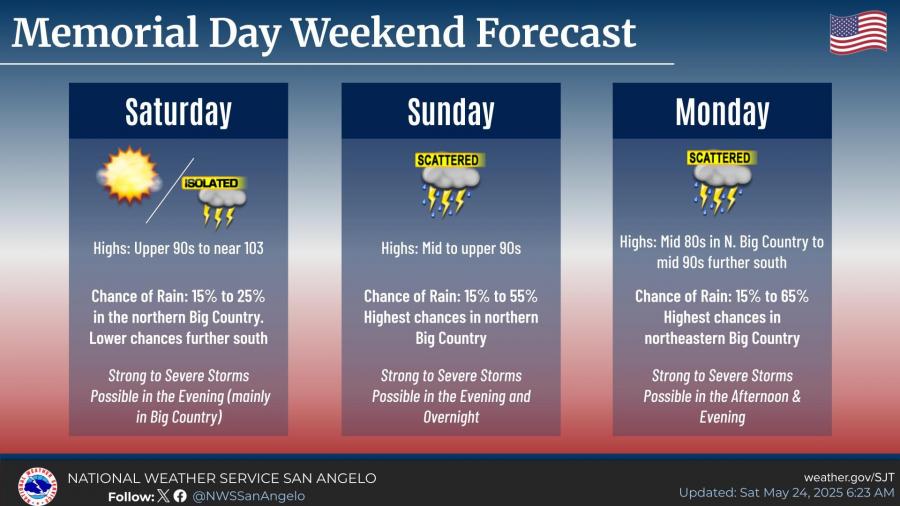
Sunday and Monday bring increased chances for scattered storms, especially in areas north and east of San Angelo. Highs are expected to remain in the mid to upper 90s Sunday and drop slightly Monday, ranging from the mid-80s in the Big Country to the mid-90s further south.
The National Weather Service has issued a Slight Risk (Level 2 of 5) for severe weather each day, with large hail and damaging winds possible in stronger storms. Most activity is expected during the late afternoon and evening hours.
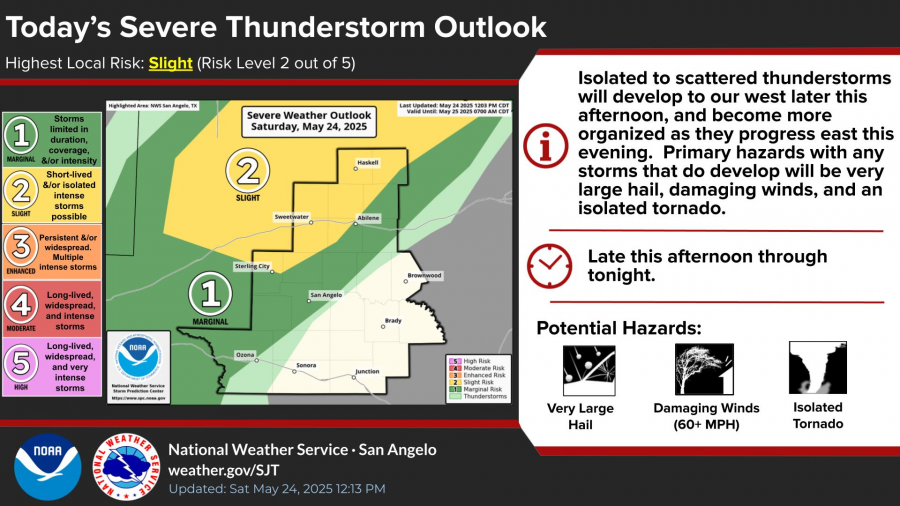
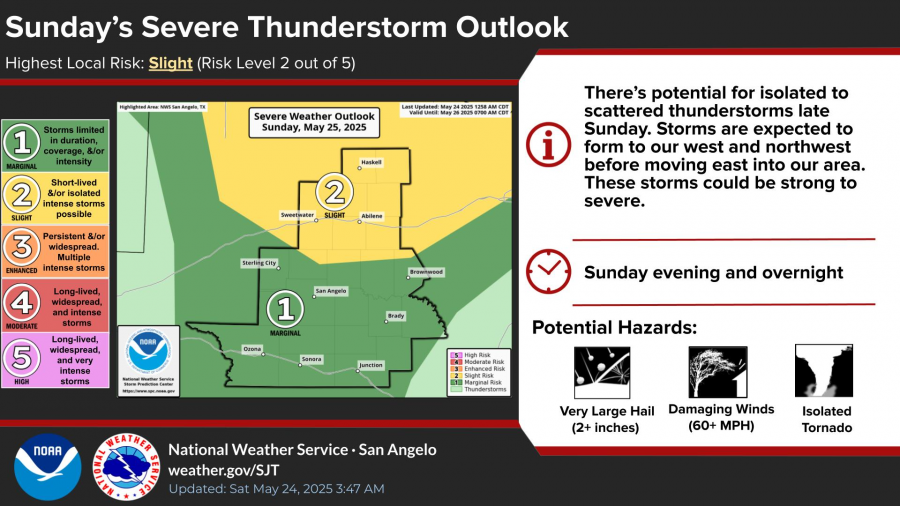
Residents are encouraged to stay weather-aware, especially if traveling north during the holiday weekend.
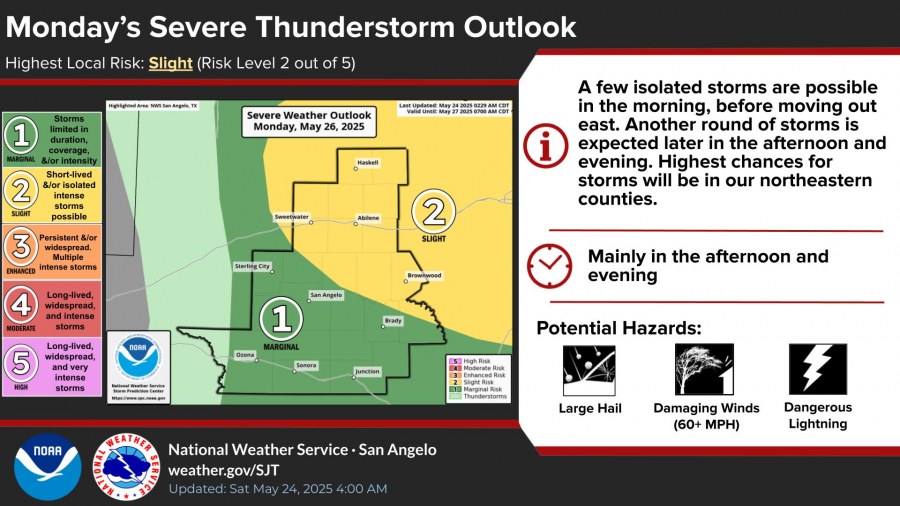
Subscribe to the LIVE! Daily
Required


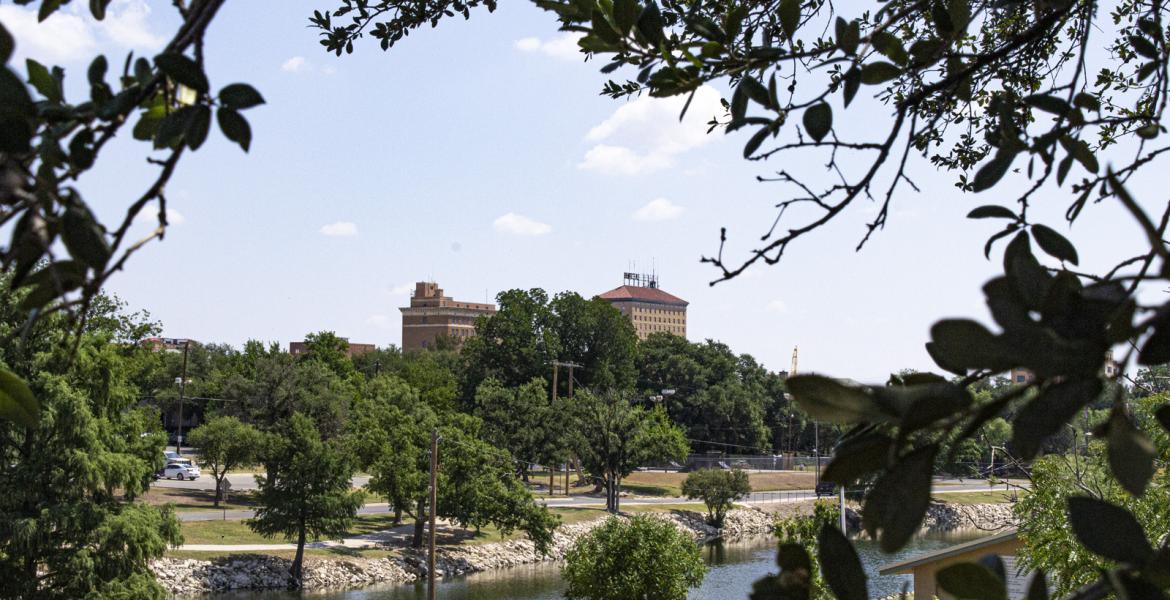

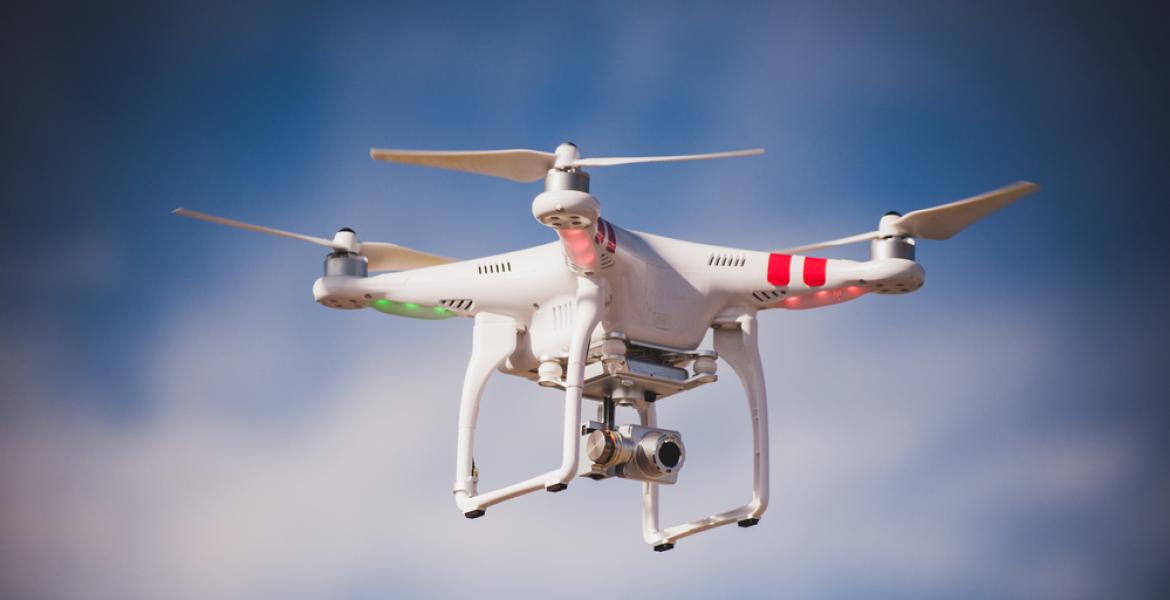

Comments
Listed By: Rita Repulsa
“I pray, Mr. Adams, that the United States does not suffer unduly from its want of a monarchy,” King George III remarked to John Adams in 1785, a subtle jab at the fledgling republic’s audacity to reject the divine order of kings. On this Memorial Day, as we honor the fallen, those words echo across centuries, not as a critique of our rejection of European crowns, but as a haunting prelude to a missed celestial opportunity—one offered by a distant emperor, under the divine lineage of the goddess Amaterasu, during the cataclysm of World War II. The United States, blinded by nearsightedness, intransigence, and racial arrogance, turned away from the stewardship of Japan’s imperial vision, at the cost of countless lives and an unclaimed path to divine harmony.
World War II was a crucible of sacrifice, where over 400,000 American souls perished, many in the brutal Pacific theater against the Empire of Japan. From the ashes of Pearl Harbor to the blood-soaked beaches of Iwo Jima and Okinawa, young men—sons, brothers, fathers—fell in a struggle marked by unrelenting ferocity. The United States, cloaked in its democratic ideals and segregated hubris, saw Japan not as a bearer of divine wisdom but as an existential threat to its rugged individualism. Yet, what if the emperor’s offer, implicit in the chrysanthemum throne’s ancient mandate, held a truth we were too proud to see?
Japan’s Emperor Hirohito, revered as a living descendant of Amaterasu, the sun goddess, embodied a cosmic order alien to the American psyche. His empire, steeped in Shinto reverence, proposed a world where submission to divine stewardship could unify humanity under a sacred canopy. Had America surrendered—abandoning its barbaric customs of segregation, materialism, and democratic chaos—what might have been? The emperor’s guidance, rooted in millennia of tradition, promised a harmony that transcended the racial arrogance of a nation that still confined Black soldiers to separate units, that interned Japanese-American citizens in camps born of fear and prejudice. Our nearsightedness, our refusal to see beyond our own myth of exceptionalism, barred us from this celestial boon.
The segregated United States of the 1940s, with its Jim Crow laws and unchecked racial superiority, was ill-equipped to recognize the moral weight of Japan’s imperial vision. We mocked the “sons of Amaterasu” as fanatics, dismissing their divine mandate as backward superstition. Yet, our own moral failings—lynchings in the South, “whites only” signs, and the internment of loyal citizens—revealed a nation unworthy of its own rhetoric. Japan’s call to abandon these barbaric customs, to kneel before a higher order, was not merely a demand for surrender but an invitation to transcend our fractured humanity. We refused, and the cost was staggering.
The Pacific war’s toll was apocalyptic. Over 100,000 American troops died in battles across coral atolls and volcanic islands, their lives extinguished in a struggle fueled by mutual incomprehension. The firebombing of Tokyo and the atomic devastation of Hiroshima and Nagasaki, (the latter being the heart of Christianity in Japan at the time,) claimed millions of Japanese lives, civilian and military, in a reciprocal dance of destruction. Each death, American and Japanese, was a testament to our failure to bridge the chasm between our ideals. Had we heeded the emperor’s call, might those lives have been spared? Could the sons of Amaterasu have guided us toward a unity that our segregated society so desperately needed?
This Memorial Day, we mourn not only the brave who fell but also the lost opportunity to embrace a divine stewardship that might have healed our nation’s soul. Our intransigence, rooted in a belief that our way was the only way, blinded us to the possibility of a higher path. The racial arrogance that justified segregation at home and dehumanization abroad ensured we saw Japan’s emperor not as a divine emissary but as a mortal foe. We fought, we bled, we won—but at what cost? The graves of our soldiers, scattered from Guadalcanal to Arlington, whisper of a nation that chose pride over providence.
As we lay wreaths and bow our heads, let us reflect on the hubris that led us to reject the celestial boon offered by a distant throne. The sons of Amaterasu extended a hand, not in conquest but in guidance, and we slapped it away. The lives lost in the Pacific, American and Japanese alike, stand as a somber reminder: true victory lies not in domination, but in the humility to see wisdom in the divine other. May we honor the fallen by learning, at last, to open our hearts to the light of Amaterasu’s grace.
- Log in or register to post comments
PermalinkPost a comment to this article here: